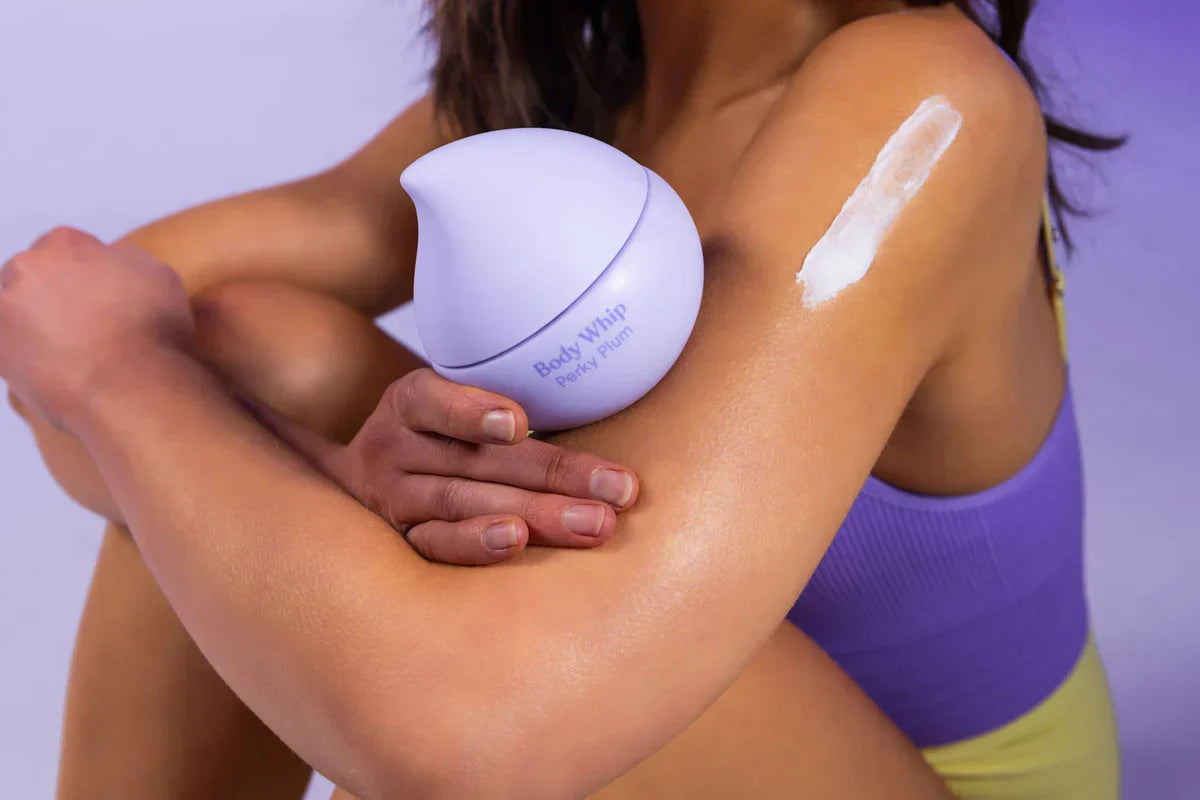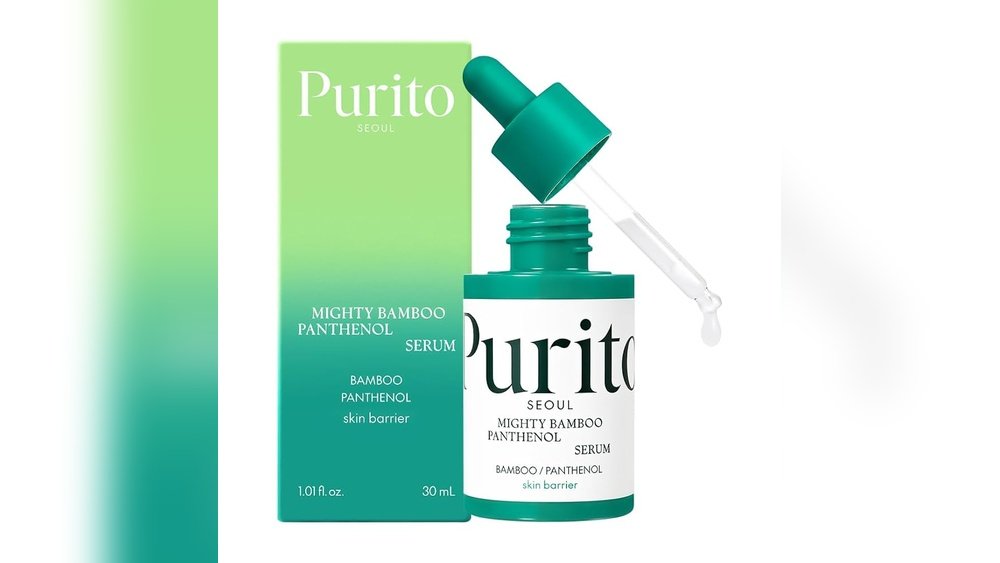Is your skin feeling dry, tight, or irritated? You might have a damaged moisture barrier, and fixing it quickly is key to restoring your skin’s natural glow and health.
Knowing how to repair your moisture barrier fast can save you from discomfort and protect your skin from further damage. You’ll discover simple, effective steps to heal your skin barrier using easy-to-follow routines and smart product choices. Keep reading to find out exactly what you should do—and what to avoid—to bring your skin back to life, fast.
Your skin deserves this quick rescue!

Credit: www.amazon.com
Signs Of Moisture Barrier Damage
Recognizing the signs of moisture barrier damage is essential for fast and effective repair. The moisture barrier protects your skin from water loss and external irritants. When damaged, the skin loses its ability to stay hydrated and defend itself. Early detection helps prevent further harm and speeds up healing.
Dryness And Flaking
Dry skin is a common sign of a damaged moisture barrier. The skin may feel rough or look flaky. This happens because the barrier cannot hold moisture inside. Without enough hydration, skin becomes tight and uncomfortable.
Redness And Irritation
Red or irritated skin often means the barrier is weakened. The skin becomes sensitive to products and environmental factors. You might notice itching or burning sensations. These reactions indicate the skin is struggling to protect itself.
Increased Sensitivity
A damaged moisture barrier makes skin more sensitive than usual. Even gentle skincare products may cause stinging or discomfort. The skin reacts easily to temperature changes or pollution. This sensitivity signals the need for immediate care.
Breakouts And Inflammation
Pimples and inflammation can occur when the moisture barrier is damaged. Harmful bacteria can enter the skin more easily. This triggers acne and swelling. Repairing the barrier helps reduce these skin problems.
Oily Or Shiny Skin
Sometimes, damaged skin produces extra oil to compensate for dryness. This causes a shiny or greasy appearance. The skin tries to protect itself but creates an imbalance. Fixing the barrier restores natural oil levels.
Quick Steps To Repair The Barrier
Repairing a moisture barrier quickly requires focused and simple steps. This helps restore skin’s natural protection fast. Follow these quick steps for effective results.
Cleanse Gently Without Stripping
Use a mild, fragrance-free cleanser. Choose a non-foaming formula. Wash with lukewarm water only. Avoid scrubbing or harsh soaps. This prevents further barrier damage.
Apply Moisturizer With Repair Ingredients
Pick a moisturizer containing ceramides, fatty acids, or hyaluronic acid. These ingredients help rebuild the barrier. Apply moisturizer twice daily for best results. Pat gently instead of rubbing the skin.
Use Hydrating Serums
Serums with glycerin or hyaluronic acid attract moisture. Apply serum right after cleansing. Follow with moisturizer to lock in hydration. This boosts moisture levels quickly.
Protect Skin With Sunscreen
Always use a broad-spectrum sunscreen. UV rays can worsen barrier damage. Apply sunscreen every morning. Reapply if exposed to the sun for long periods. Protection supports faster healing.
Simplify Your Skincare Routine
Stop using harsh products like retinoids and exfoliants temporarily. Avoid strong acids and fragrances. This reduces irritation and allows the barrier to heal. Keep your routine gentle and minimal.
Essential Ingredients For Barrier Repair
Repairing the moisture barrier requires key ingredients that soothe and restore skin quickly. These ingredients help rebuild the skin’s natural protective layer. They lock in moisture and protect from irritants. Using the right components speeds up healing and reduces sensitivity.
Focus on ingredients that hydrate deeply and strengthen the barrier. Choose products with simple, proven ingredients to avoid further damage. Consistent use improves skin texture and comfort in days.
Ceramides
Ceramides are lipids naturally found in skin. They fill gaps between skin cells. This strengthens the barrier and prevents water loss. Products with ceramides help skin retain moisture and repair faster. They restore the skin’s natural shield against irritants.
Hyaluronic Acid
Hyaluronic acid attracts water to the skin. It holds moisture in the outer layer. This keeps skin plump and hydrated. Using hyaluronic acid reduces dryness and tightness. It supports skin healing by maintaining hydration levels.
Glycerin
Glycerin is a humectant that draws moisture into the skin. It softens and smooths dry, flaky areas. Glycerin helps repair damaged skin by improving hydration. It also protects skin from harsh environmental factors.
Fatty Acids
Fatty acids nourish the skin and rebuild the barrier. They replenish essential oils that protect skin from dryness. Fatty acids reduce inflammation and support skin repair. Look for ingredients like linoleic acid in moisturizers.
Cholesterol
Cholesterol works with ceramides and fatty acids to repair the barrier. It helps maintain skin flexibility and resilience. Cholesterol supports the skin’s natural repair process. It strengthens the barrier to prevent further damage.
Adjusting Your Skincare Routine
Adjusting your skincare routine plays a key role in repairing your moisture barrier fast. A damaged barrier needs gentle care and targeted hydration. Changing your products and habits can help restore your skin’s natural protection quickly.
Focus on soothing and nourishing your skin. Avoid anything that strips away natural oils or causes irritation. A simple, consistent routine works best during this healing phase. Here are important steps to follow.
Cleanse Gently
Use a mild, fragrance-free cleanser with lukewarm water. Avoid foaming or harsh cleansers that dry out the skin. Skip scrubs and exfoliants until your barrier is stronger. Gentle cleansing keeps moisture locked in.
Moisturize Frequently
Choose moisturizers with barrier-repairing ingredients like ceramides, cholesterol, and fatty acids. Apply at least twice daily to lock in hydration. Moisturizers help rebuild the skin’s protective layer and reduce dryness.
Add A Hydrating Serum
Use a serum containing glycerin or hyaluronic acid after cleansing. These ingredients attract moisture to the skin’s surface. Follow with your moisturizer to seal in hydration. This step boosts skin repair and softness.
Protect With Sunscreen
Apply a broad-spectrum sunscreen every day. UV rays damage the moisture barrier and slow healing. Use sunscreen even on cloudy days or indoors near windows. Protection prevents further damage and supports recovery.
Simplify Your Routine
Pause use of retinoids, exfoliating acids, and strong vitamin C products. These can irritate and worsen barrier damage. Stick to gentle, hydrating products only. Simplifying reduces stress on the skin and speeds up repair.
Lifestyle Tips To Support Healing
Supporting your skin’s moisture barrier repair goes beyond skincare products. Daily habits impact how fast your skin heals. Simple lifestyle changes can reduce irritation and boost recovery. Focus on hydration, rest, and gentle care to help your skin rebuild its natural defenses.
These tips keep your skin calm and strong. They create a healthy environment for your barrier to repair quickly. Consistency matters. Small steps daily lead to better skin health.
Stay Hydrated Throughout The Day
Water helps flush out toxins and keeps skin moist. Drink at least eight glasses of water daily. Avoid sugary or caffeinated drinks that dry out your skin. Proper hydration supports cell repair and improves skin elasticity.
Get Enough Sleep Each Night
Sleep is when your skin heals and regenerates. Aim for seven to eight hours of quality sleep. Lack of sleep increases stress hormones that harm your skin barrier. A good rest helps reduce redness and speeds up repair.
Eat A Balanced Diet Rich In Nutrients
Healthy skin needs vitamins and minerals. Include foods high in omega-3 fatty acids, antioxidants, and vitamins A, C, and E. Fruits, vegetables, nuts, and fish support skin repair. Avoid processed foods that cause inflammation.
Limit Sun Exposure And Wear Protective Clothing
Sun damages the moisture barrier and slows healing. Stay in the shade during peak hours. Wear hats, sunglasses, and long sleeves outdoors. Always apply broad-spectrum sunscreen to protect your skin from UV rays.
Avoid Harsh Skincare Products And Fragrances
Use gentle, fragrance-free products to prevent irritation. Skip exfoliants, retinoids, and alcohol-based toners until your barrier heals. Harsh ingredients can strip natural oils and worsen damage. Stick to soothing, moisturizing formulas.
Manage Stress With Relaxation Techniques
Stress triggers inflammation and skin sensitivity. Practice deep breathing, meditation, or light exercise daily. Reducing stress helps your skin stay calm and supports faster barrier repair. Find what relaxes you and make it a habit.

Credit: www.ubuy.co.in

Credit: us.sundaebody.com
Frequently Asked Questions
How To Heal Skin Barrier Asap?
Heal your skin barrier fast by using a gentle cleanser, moisturizing with ceramides and hyaluronic acid, and applying daily sunscreen. Avoid exfoliants, retinoids, and fragrances. Drink plenty of water, limit hot showers, and simplify your routine to reduce irritation and support recovery.
How Many Days To Heal A Damaged Skin Barrier?
A damaged skin barrier typically heals in 7 to 14 days with proper care. Use gentle cleansers, moisturizers with ceramides, and sunscreen daily. Avoid harsh ingredients and exfoliation. Staying hydrated and protecting skin from UV damage speeds recovery.
Can You Repair Skin Moisture Barrier?
Yes, you can repair your skin’s moisture barrier by using gentle cleansers, hydrating moisturizers with ceramides, and daily sunscreen. Avoid harsh ingredients like exfoliants, retinoids, and fragrances. Keep your routine simple, stay hydrated, and protect skin from UV damage to restore its natural barrier effectively.
Can I Use Vaseline On A Damaged Skin Barrier?
Yes, you can use Vaseline on a damaged skin barrier. It seals moisture and protects skin from irritants. Apply on clean, dry skin for best results. Avoid using on infected or severely broken skin. Consult a dermatologist if irritation occurs.
Conclusion
Repairing your moisture barrier fast needs gentle care and patience. Use simple, mild products and avoid harsh ingredients. Keep your skin hydrated with moisturizers containing ceramides and hyaluronic acid. Protect your skin daily with sunscreen to prevent further damage. Drink plenty of water to support skin health from within.
Remember, consistent care helps your skin heal quicker and stay strong. Small steps make a big difference in restoring your skin’s natural defense. Stay gentle and patient for the best results.
 Skip to content
Skip to content 